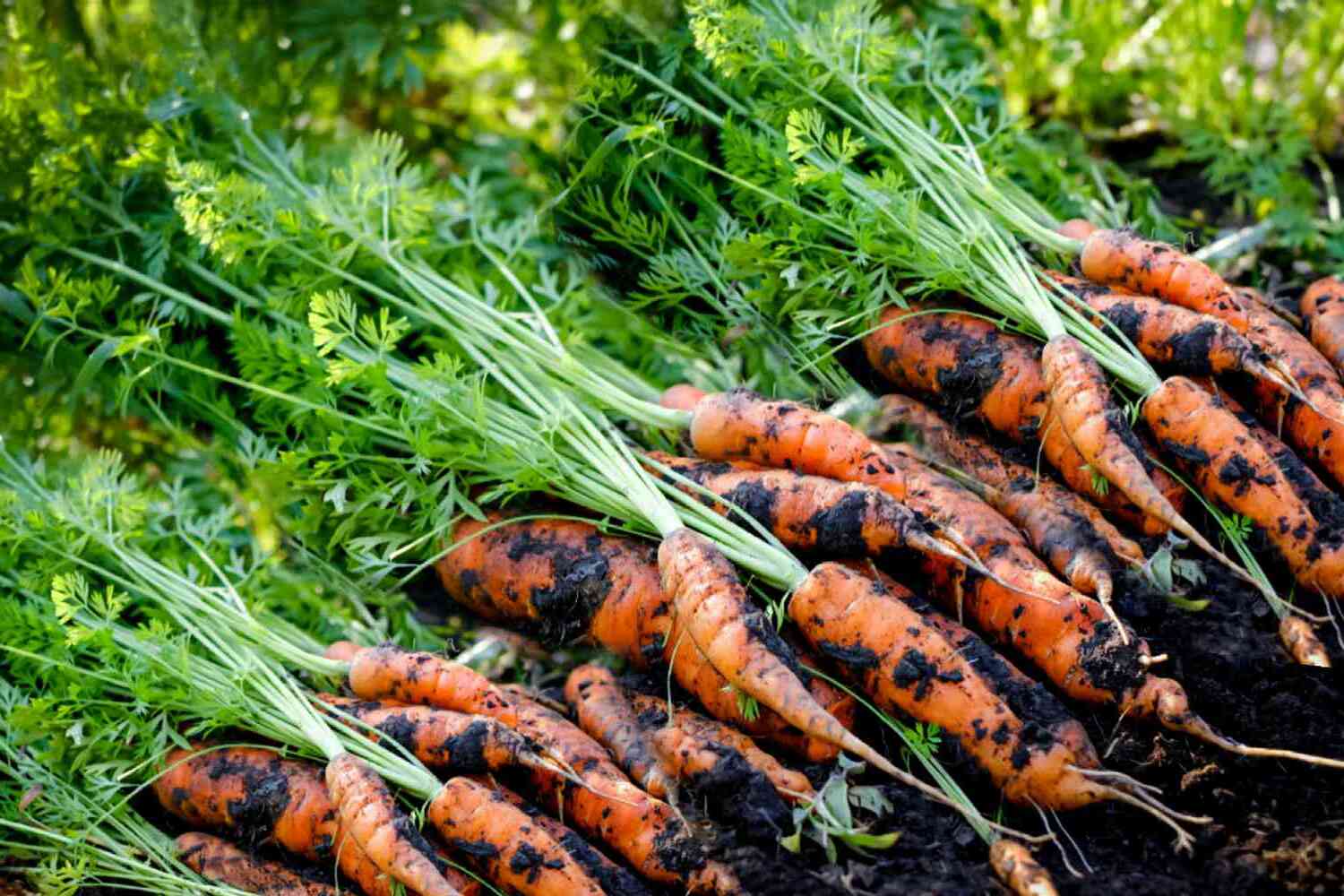
Ever wondered why carrots are the go-to veggie in cartoons for a boost of super vision? Or why parents always seem to say, "Eat your carrots, they're good for your eyes!"? Well, you're about to find out! Carrots are not just crunchy, tasty, and fun to munch on; they're packed with fascinating facts that might just make you see them in a whole new light. From their colorful history to their surprising health benefits, carrots are more than meets the eye. Did you know that carrots weren't always orange? That's right! These root vegetables have a rainbow of colors and a storied past that's as rich as their nutrient content. So, let's dig into the world of carrots and uncover some amazing facts that'll make you say, "Wow, I never knew that about carrots!" Ready to get your mind blown by these crunchy wonders? Let's hop to it!
Key Takeaways:
- Carrots get their vibrant orange color from beta-carotene, which our bodies turn into essential vitamin A for good vision and a strong immune system.
- Carrots come in various colors and are enjoyed worldwide in diverse dishes. They are nutritious, versatile, and environmentally friendly, but should be consumed in moderation to avoid skin discoloration.
What Makes Carrots Orange?
Carrots are famous for their vibrant orange color, but have you ever wondered what gives them this hue? The answer lies in beta-carotene, a type of pigment. This substance not only colors carrots but also converts into vitamin A in our bodies, essential for good vision and immune function.
- Beta-carotene is responsible for the orange color in carrots.
- When we eat carrots, our bodies turn beta-carotene into vitamin A, crucial for healthy eyesight and a strong immune system.
The History of Carrots
Believe it or not, the carrots we know and love today weren't always orange. Originally, they were purple, white, red, yellow, and even black. The transformation to the orange variety we're familiar with was a result of selective breeding by Dutch farmers in the 16th and 17th centuries.
- Carrots were not originally orange; they were purple, white, red, yellow, and black.
- Dutch farmers in the 16th and 17th centuries selectively bred carrots to be orange.
Carrots Around the World
Carrots are a global staple, grown on every continent except Antarctica. Their adaptability to different climates and soils makes them a favorite among farmers and gardeners worldwide.
- Carrots are cultivated on every continent except Antarctica.
- Their adaptability to various climates and soils contributes to their global popularity.
Nutritional Benefits of Carrots
Carrots are not just tasty; they're packed with nutrients. They're a great source of fiber, which aids in digestion, and antioxidants, which can help fight off diseases.
- Fiber in carrots helps with digestion.
- Antioxidants in carrots can help combat diseases.
Carrots in Cuisine
From raw snacks to cooked dishes, carrots are incredibly versatile in the kitchen. They can be juiced, roasted, boiled, or even used in cakes, showcasing their flexibility in both sweet and savory recipes.
- Carrots can be enjoyed raw, juiced, roasted, or boiled.
- Their versatility extends to both sweet and savory dishes, including cakes.
Surprising Facts About Carrots
Carrots have a few tricks up their sleeves. For instance, they can be used as a natural sweetener in dishes. Additionally, despite popular belief, carrots are not always beneficial for improving night vision. This myth stems from World War II propaganda.
- Carrots can act as a natural sweetener in recipes.
- The belief that carrots significantly improve night vision is a myth originating from World War II propaganda.
The World's Love for Carrots
Globally, carrots are among the most consumed vegetables. Their popularity is evident in the vast array of carrot-based dishes found in different cultures, from carrot cake in the United States to carrot halwa in India.
- Carrots rank among the most consumed vegetables worldwide.
- Diverse carrot-based dishes, like carrot cake and carrot halwa, highlight their global appeal.
How to Grow Carrots
Growing carrots is a rewarding experience for many gardeners. They prefer loose, sandy soil and cooler temperatures. With proper care, carrots can be harvested in about three to four months after planting.
- Carrots thrive in loose, sandy soil.
- They can be harvested approximately three to four months after planting.
The Environmental Impact of Carrot Cultivation
Carrot cultivation, like any agriculture, impacts the environment. However, carrots have a relatively low water footprint compared to other vegetables, making them an environmentally friendly option for those looking to reduce their ecological impact.
- Carrots have a low water footprint compared to other vegetables.
- Their cultivation is considered relatively environmentally friendly.
Carrots and Health Myths
While carrots are healthy, some myths exaggerate their benefits. For example, eating too many carrots can cause carotenemia, a condition where the skin turns slightly orange due to excess beta-carotene.
- Eating an excessive amount of carrots can lead to carotenemia, causing the skin to turn orange.
- It's important to consume carrots in moderation to avoid this condition.
The Future of Carrot Cultivation
With advancements in agricultural technology, the future of carrot cultivation looks promising. Scientists are exploring ways to grow carrots that are more resistant to pests and diseases, potentially increasing yield and reducing the need for chemical pesticides.
A Fresh Perspective on Carrots
Carrots, more than just a crunchy snack or a side dish, hold a world of surprises and benefits. From their humble beginnings as medicine to becoming a staple in diets worldwide, these vibrant veggies have proven their worth time and again. Packed with vitamins, antioxidants, and fiber, they're a powerhouse for maintaining health and preventing diseases. Beyond nutrition, carrots have made their mark in history and culture, showing up in tales and traditions across the globe. Whether you're munching on them raw, blending them into a smoothie, or incorporating them into meals, carrots offer a blend of health benefits and flavors that few other vegetables can match. So next time you bite into a crisp carrot, remember, you're not just enjoying a tasty treat; you're partaking in a rich legacy that spans centuries and continents.
Frequently Asked Questions
Was this page helpful?
Our commitment to delivering trustworthy and engaging content is at the heart of what we do. Each fact on our site is contributed by real users like you, bringing a wealth of diverse insights and information. To ensure the highest standards of accuracy and reliability, our dedicated editors meticulously review each submission. This process guarantees that the facts we share are not only fascinating but also credible. Trust in our commitment to quality and authenticity as you explore and learn with us.


